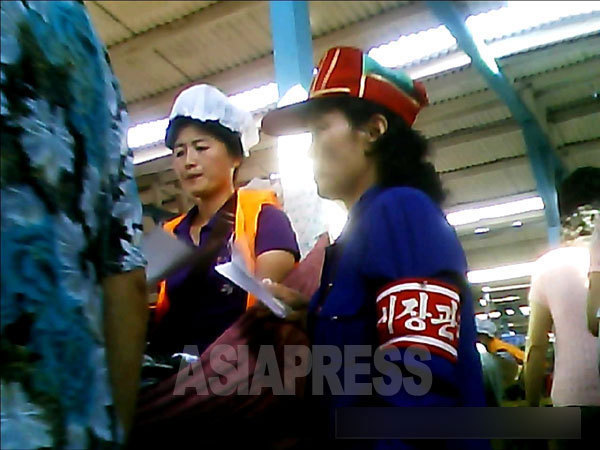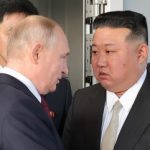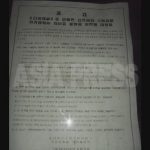
“The North Korean won is plummeting.”
News was first reported on January 20 by a reporting partner in Musan County, North Hamkyung Province, that the actual exchange rate value of the RMB to North Korean won had strengthened from 1,100 N. Korean won to 1,350 N. Korean won. The value of the RMB (equivalent to roughly 0.14 USD) had jumped by 17.6 percent in North Korean markets, when compared to figures from surveys conducted late last year.
On the same day, news of the yuan’s sharp rise came from Chongjin, North Hamkyung Province, where it had risen to a value of 1,380 won and from Hyesan, Ryanggang Province, where it had risen to a value of 1,320 won. A reporting partner in Hyesan City said, “There is spreading anxiety in the markets from the memory of monetary reform back in the day.”
By the following day though, the actual exchange rate had fallen back down to 1,250 won, eventually settling at 1,280 won on January 23, before the Lunar New Year holiday.
※ Towards the end of 2009, the Kim Jong-un regime carried out a “currency reform,” issuing new notes and denominations. The sudden reforms, reduced the won to 1/100th of its previous value, leaving the economy in disarray.
◆ Severe foreign currency difficulties
North Korea, which was slapped with strong economic sanctions by the U.N. Security Council in 2017, lost nearly 90% of its exports the following year and was hit hard by the resulting lack of foreign currency. Nevertheless, food prices and exchange rates for US dollars and the RMB remained stable throughout 2018 and 2019. During that time, the exchange rate for RMB stayed roughly at 1,200 North Korean won per yuan.
Except for fuel prices, inflationary trends in North Korea are largely linked to foreign currency exchange rates. In other words, despite the lack of foreign currency, inflation did not occur because the exchange rate against the U.S. dollar and RMB remained stable.
The stability of prices is often referenced by those in Japan and South Korea who claim that the “economic sanctions have had little effect.” This is not the case, however. The impact of sanctions in Pyongyang as well as in provincial cities has been very significant, as documented by a 2-year investigation conducted by ASIAPRESS and its reporting partners in North Korea.
Among the investigation’s findings are reports of the closures of trade companies, the collapse of apartment prices, the disintegration of the wealthy class in Pyongyang, the shutdowns and production losses at mines, the slumps at markets, the deterioration of living conditions for ordinary citizens, the expanding budget gaps of the army and police, the increased numbers of homeless children, and the rise of prostitution. At the General Assembly of the Workers’ Party Central Committee held late last year, Kim Jong-un described the current situation as a “severe and unprecedented challenge.”
In spite of the conditions, how has the foreign exchange rate remained stable? This was a mystery among experts on North Korea. A South Korean researcher explained it as “dollarization.” The RMB and U.S. dollar are now widely circulated in North Korea as residents lack faith in the national currency- the North Korean won. By shunning the uncredited, local currency, the researcher claimed that prices have remained stable. Other experts give an alternate explanation, arguing that “the North Korean authorities are intervening at illegal foreign exchange markets to stabilize the won.”
Next page :Foreign currency seized at markets...

























